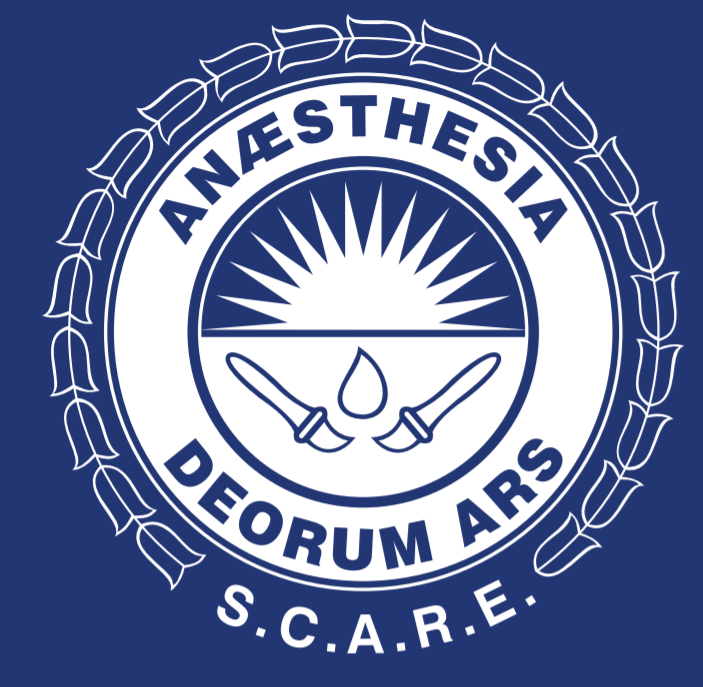Factors influencing the level of knowledge of cardiopulmonary resuscitation in hospitals in Peru
Abstract
Introduction: Worldwide, the incidence of cardiopulmonary arrest is 20-140 per 100,000 people, with an alarmingly low survival rate of approximately 2-11%. Effective cardiopulmonary resuscitation (CPR) is required in order to improve this situation.
Objective: To determine the association between social and education factors and the level of knowledge of CPR among healthcare staff in hospitals in Peru.
Methodology: A multi-centre, cross-sectional analytical study was conducted based on convenience sampling among healthcare workers in 25 hospitals in Peru, using questionnaires validated for the local population. Bi-variate and multi-variate statistics were calculated using generalised linear models.
Results: Of 1075 people surveyed, 52% were females, the mean age was 33, 77% were physicians, 61% had attended national universities, and 62% had taken a first aid course/workshop. Of them, 59% failed the CPR test. Having spent a longer number of hours in the emergency service (OR: 1.003; 95% CI: 1.002-1.004; p < 0.001), being a physician (OR: 1.51; 95% CI: 1.13-2.03; p: 0.027) or being a nurse (OR: 1.45; 95% CI: 1.10-1.93; p: 0.001), was associated with good knowledge of CPR, adjusted for prior attendance to a CPR course, and for the place of work of the individual respondent.
Conclusion: The level of knowledge was low and this is something that needs to be considered when developing continuing education policies in order to ensure that the healthcare staff has updated knowledge, and is prepared, in theory and in practice, to avoid complications and fatal outcomes.
References
2. Ramos JV. Muerte súbita cardíaca: la importancia de la desfibrilación temprana y la resucitación cardiopulmonar. CorSalud Rev Enfermedades Cardiovasc 2014;6 Suppl 1:46-50.
3. Meaney PA, Bentley JB, Mancini ME, Christenson J, de Caen AR, Bhanji F, et al. Calidad de la reanimación cardiopulmonar: mejora de los resultados de la reanimación cardíaca intra y extrahospitalaria. Circulation. 2013;128:417-35.
4. Vigo-Ramo J. Muerte súbita y emergencias cardiovasculares: problemática actual. Rev Peru Med Exp Salud Publica. 2008;25:233-6.
5. Fritz E, Gempeler R. Reanimación cardiopulmonar. Más allá de la técnica. Rev Colomb Anestesiol. 2015;43:142-6.
6. Field JM, Hazinski MF, Sayre MR, Chameides L, Schexnayder SM, Hemphill R, et al. Part 1. Executive summary: 2010 American Heart Association Guidelines for cardiopulmonary resuscitation and emergency cardiovascular care. Circulation. 2010;122 Suppl. 3:S640-56.
7. Avisar L, Shiyovich A, Aharonson-Daniel L, Nesher L. Cardiopulmonary resuscitation skills retention and self-confidence of preclinical medical students. Isr Med Assoc J. 2013;15:622-7.
8. de Asmundis C, Brugada P. Epidemiología de la muerte súbita cardiaca. Rev Esp Cardiol Supl. 2013;13:2-6.
9. Rojas L, Aizman A, Arab JP, Utili F, Andresen MCM. Reanimación cardiopulmonar básica: conocimiento teórico, desempeño práctico y efectividad de las maniobras en médicos generales. Rev Médica Chile. 2012;140:73-7.
10. Mejia CR, García-Saavedra M, Benites-Flores I, Ordinola-Calle D, Failoc-Rojas VE, Valladares-Garrido D, et al. Factores asociados con el conocimiento de soporte vital básico en estudiantes de medicina de nueve universidades peruanas. Rev Mex Cadiol. 2016;27:148-55.
11. Filho F, Menezes N, Bandeira AC, Delmondes T, Oliveira A, Junior L, et al. Assessment of the general knowledge of emergency physicians from the hospitals of the city of Salvador (Brazil) on the care of cardiac arrest patients. Arq Bras Cardiol. 2006;87:634-40.
12. Sanchez Garcia AB, Fernandez Aleman JL, Alonso Perez N, Hernandez Hernandez I, Navarro Valverde R, Rosillo Castro D. Valoración del nivel de conocimientos y su adecuación en materia de RCP en el personal sanitario de los servicios de urgencias hospitalarios de la Comunidad Autónoma de la Región de Murcia. Rev Electron Trimest Enfermeria. 2015;39:230-45.
13. de Lima SG, de Macedo LA, Vidal M de L, Sá MPB de O. Educação Permanente em SBV e SAVC: impacto no conhecimento dos profissionais de enfermagem. Arq Bras Cardiol. 2009;93:630-6.
14. Ravari H, Abrishami M, Ghezel-Sofla M, Vahedian-Shahroodi M, Abrishami M. Knowledge of Iranian medical interns regarding cardio-pulmonary resuscitation. Trauma Mon. 2012;17:242-4.
15. Gonzi G, Sestigiani F, D'errico A, Vezzani A, Bonfanti L, Noto G, et al. Correlation between quality of cardiopulmonary resuscitation and self-efficacy measured during in-hospital cardiac arrest simulation; preliminary results. Acta Bio-Medica Atenei Parm. 2015;86 Suppl. 1:40-5.
16. Farah R, Stiner E, Zohar Z, Eisenman A, Zveibil F. The importance of CPR training for assessing the knowledge and skills of hospital medical and nursing personnel. Harefuah. 2007;146, 529-533, 574.
17. Mejia CR, Espinoza KG, Rivera-Chavez D, Quintana-Mendoza LY. Evaluación del entrenamiento continuado en primeros auxilios: intervención educativa en trabajadores del sector construcción, Perú. Rev Asoc Espanola Med Trab. 2016;25:1-49.
18. Robak O, Kulnig J, Sterz F, Uray T, Haugk M, Kliegel A, et al. CPR in medical schools: learning by teaching BLS to sudden cardiac death survivors - a promising strategy for medical students? BMC Med Educ. 2006;28:27.
19. Gebremedhn EG, Gebregergs GB, Anderson BB. The knowledge level of final year undergraduate health science students and medical interns about cardiopulmonary resuscitation at a university teaching hospital of Northwest Ethiopia. World J Emerg Med. 2014;5:29-34.
20. Passali C, Pantazopoulos I, Dontas I, Patsaki A, Barouxis D, Troupis G, et al. Evaluation of nurses 'and doctors' knowledge of basic & advanced life support resuscitation guidelines. Nurse Educ Pract 2011;11:365-9.
21. Kila T, Yockopua S. Knowledge of cardiopulmonary resuscitation among doctors at the Port Moresby General Hospital. P N G Med J. 2012;55:76-87.
22. Marzooq H, Lyneham J. Cardiopulmonary resuscitation knowledge among nurses working in Bahrain. Int J Nurs Pract. 2009;15:294-302.
23. Zamir Q, Nadeem A, Rizvi AH. Awareness of cardiopulmonary resuscitation in medical-students and doctors in Rawalpindi-Islamabad, Pakistan. J Pak Med Assoc. 2012;62:1361-4.
24. de Almeida AO, Araújo IEM, Dalri MCB, Araujo S. Theoretical knowledge of nurses working in non-hospital urgent and emergency care unit concerning cardiopulmonary arrest and resuscitation. Rev Lat Am Enfermagem. 2011;19:261-8.
25. Alvino F, Pamela M. Nivel de conocimiento sobre reanimación cardiopulmonar del enfermero (a) de la segunda especialidad en enfermería UNMSM 2014 [Internet]. Lima, Peru: Universidad Nacional Mayor de San Marcos; 2015 [cited 2016 May 17]. Available from: http://cybertesis.unmsm.edu.pe/handle/cybertesis/4133.
26. Miotto HC, Camargos FR da S, Ribeiro CV, Goulart EM, Moreira M da CV. Effects of the use of theoretical versus theoretical-practical training on cardiopulmonary resuscitation. Arq Bras Cardiol. 2010;95:328-31.
27. Okonta KE, Okoh BAN. Basic cardiopulmonary resuscitation knowledge of house-officers in a tertiary institution: factors determining accuracy. Pan Afr Med J. 2014;18:209.
28. Howell P Tennant I, Augier R, Gordon-Strachan G, Harding-Goldson H. Physicians' knowledge of cardiopulmonary resuscitation guidelines and current certification status at the University Hospital of the West Indies, Jamaica. West Indian Med J. 2014;63:739-43.
29. Gómez-Zárate E, Márquez-Ávila G. Conocimiento y habilidades sobre reanimación cardiocerebropulmonar básica en médicos internos de pregrado. Arch Med Urgenc Mex. 2010;2:55-9.
30. Montserrat-Gallardo M, Ripa PM, Pérez-De la Orta OH, Castro-Montes E, Fraga-Sastrías JM, Asensio-Lafuente E. Evaluación de la técnica de reanimación cardio-pulmonar básica, en adultos y ninos, entre los médicos internos de pregrado de tres hospitales de la ciudad de Santiago de Querétaro. Med Interna México. 2008;24:104-11.
31. Mejia CR, Quezada-Osoria C, Moras-Ventocilla C, Quinto-Porras K, Ascencios-Oyarce C. Nivel de conocimientos sobre emergencias médicas en estudiantes de medicina de universidades peruanas. Rev Peru Med Exp Salud Publica. 2011;28:202-9.
32. De Ruijter PA, Biersteker HA, Biert J, van Goor H, Tan EC. Retention of first aid and basic life support skills in undergraduate medical students. Med Educ Online. 2014;19:24841.
Downloads
| Article metrics | |
|---|---|
| Abstract views | |
| Galley vies | |
| PDF Views | |
| HTML views | |
| Other views | |














